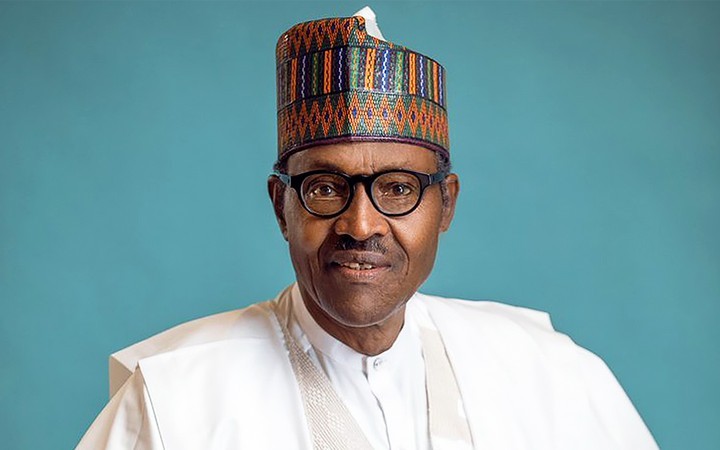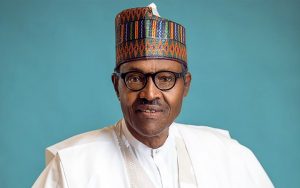
When Nigeria’s President, Major General Muhammadu Buhari (retd), defeated the incumbent President Goodluck Jonathan in February 2015, investors were upbeat. The peaceful handover of power from Jonathan to Buhari brought back investor confidence that was lost before the election due to apprehension.
In response, Nigerian stocks gained most in the world, with the yield on a $500 million Eurobond offered by the country falling to the lowest level since December 2014 due to a growing confidence. A falling yield on a bond means that investor confidence in an economy is rising, but the reverse is the case for a rising bond yield.
On April 1, 2015, the stock market all share index rose by 8.4 per cent and the naira firmed at N217/$ in the parallel market, gaining 0.46 per cent. The nation’s currency remained stable at N197/$ at the interbank market since February.
Consequently, Renaissance Capital remarked that “a Buhari win implies reformist policies,” noting that it would be positive for investors.
However, soon after Buhari was sworn in, his boom turned to bust as all the market indices began to tumble. By August 2015, the stock market had lost N2.5 trillion due to what the Lagos Chamber of Commerce and Industry, LCCI, described as “lack of policy clarity and economic direction.”
Investors became jittery
Six months after Buhari came to power, he moved from one government ministry to another, assuring them of his vision and mission for the country. Ordinarily, according to market analyst, Ike Ibeabuchi, there was nothing wrong with the move. “But while he dilly-dallied, the economy began to wane and he had to pay a heavy price for that for that.”
Critical ministerial appointments were ignored, which turned out to be his Achilles heel. Investors soon started demanding an economic direction.
“Council urged the Buhari administration to make a clear pronouncement with respect to its fiscal policy, foreign exchange policy, tax policy, subsidy policy, trade policy, reform of oil and gas sector (upstream and downstream), the power sector, the 2015 budget, the auto policy, sectoral policies, etc. All these are necessary for investors to have a clear insight into the policy direction of the government and take strategic investment decisions,” the LCCI said in its statement released in August 2015, three months after Buhari’s swearing-in.
The delay began to have impact on the currency.
In response, the LCCI said, “Council, therefore, calls for a more strategic framework for the management of the foreign exchange market. Council urged the President of the Federal Republic of Nigeria to quickly set up an economic team that will interface with the CBN, the organised private sector and the key economic ministries to come up with a sustainable model for the management of the foreign exchange market.”
Investors told our reporters by August 2015 that they were awaiting Buhari’s ministers.
Recession came
While Nigeria burnt, Buhari fiddled. The urgency needed by the economy was not matched by Buhari’s responses, according to analysts.
At the time Buhari was reluctant to appoint ministers, the oil price was ebbing. The average oil price at that time was $50 – about $3 below the benchmark oil price in that year’s budget.
According to analysts, even when Buhari ended up appointing some ministers, investors were sceptical about their capacities to deliver. Due to global headwinds, oil price fell to $28 per barrel by December 2015, forcing the government into a panic mode.
One of the hallmarks of the Buhari administration was protectionism. With his mind set on stopping unbridled imports, Buhari’s government shut down borders, and this proved costly for the economy, especially in relation to food inflation.
In 2016, Africa’s most populous nation fell into recession, its worst in 33 years. The gross domestic product recorded a contraction of 3.62 per cent in the third quarter of 2020, with the cumulative GDP for the first nine months of 2020 standing at -2.48 per cent.
In 2020, the administration recorded another recession, this time, due to COVID-19 which hit many countries.
Indices continued to plunge
The record of Buhari’s administration on several economic indices are not looking good.
Unemployment rises by 437%
As at the fourth quarter of 2014, Nigeria’s unemployment rate was 6.2 per cent, according to data by the National Bureau of Statistics, NBS. As at the fourth quarter of 2021, the NBS disclosed that the joblessness rate in the economy had risen to 33.3 per cent, making it one of the worst in the world and signifying a 437 per cent increase over the seven-year period.
“Unemployment will continue to rise as school leavers join an economy that is weak at creating jobs,” said Augusto & Co., which had predicted that the unemployment rate would hit 35 per cent in 2021.
Naira weakens by 181%
The exchange rate management system is, perhaps, the area that has attracted most criticism to Buhari and the Central Bank of Nigeria, CBN. As at May 2015, Naira exchange for dollar at N197/$ at the interbank market and N217/$ at the parallel market. On Friday, May 26, 2022, Naira-to-dollar exchange rate was N415.72 at the Importers and Exporters Window and nearly N610 at the parallel market.
By implication, dollar has weakened by 111 per cent in the official market and 181 per cent in the parallel market since Buhari came to power. Analysts generally blame the CBN for its focus on demand management rather than on the supply side which deals with foreign exchange earnings.
The Chief Executive Officer of Centre for the Promotion of the Private Enterprise, Dr Muda Yusuf, said in one of his statements that, “The CBN has not allowed the market to determine the market rate; it needs to give the market a chance. Its current approach would continue to deepen distortions in the economy, perpetuate round-tripping, fuel speculation, suppress forex supply and boost underground economy.”
He noted that what was happening in the foreign exchange market was a result of the CBN policy choice of a fixed exchange rate regime and administrative allocation of forex, which should not happen.
He further said that suppressing the market was like swimming against the tide, adding that moving retail forex transactions from BDCs to the banks was like kicking the can down the road.
“The same issues would manifest even with the banks. Managing a subsidy regime is typically a herculean task. We have seen this happen with fertiliser subsidy and petrol subsidy. The story cannot be different with foreign exchange.”
Subsidy rises by N3.9trn
As at 2015 when Buhari came to power, petrol subsidy had been pruned to N100 billion. In the 2022 budget, Buhari proposed N4 trillion to the National Assembly in a subsidy regime that has been described as fraudulent and opaque. Oil theft has also worsened as the country loses N30 to N60 trillion annually, according to a 2022 research supported by Shell.
The President of MAN, Mansur Ahmed, told Sunday PUNCH that petrol subsidy was a yoke on the Nigerian economy, arguing that placing much importance on petrol over issues of health and infrastructure was misdirected.
“We believe that subsidy is a yoke on our economy. First of all, the social sector is critical. Maybe people feel that fuel is so important, but if you compare it with health, education and security, you will notice it is nowhere near them,” he said.
A professor of Energy Economics at Nnamdi Azikiwe University, Uche Nwogwugwu, condemned the N4tn petrol subsidy, saying that it was a tax on consumption.
He said the amount was enough to subsidise the cost of local refining, noting that channelling Nigeria’s scarce resources to subsidy when issues of funding education, infrastructure and security were on the front burner was a waste of money.
“Nobody knows the basis of the N4trn subsidy. We in energy economics say that any subsidy on petroleum is corruption. A lot of development can be done with N4trn and we can develop alternative energy sources of energy and renewable energy with that amount, to rely less on fossil fuel.”
A development economist, Aliyu Iliyas, decried the poor state of the country, urging the Federal Government to eliminate fuel subsidy.
He said, “Well, the fact remains that the country is in a serious mess as the revenue is very poor. Consequently, the government has to borrow. However, the government’s borrowing rate is very dangerous.
“If you look at the oil market now, the price of oil has been increasing for some time now but the country isn’t benefiting from it because we are not producing at home. Unfortunately, as the price of oil continues to rise, so also will our subsidy bail-out which causes a series of problem. So, the best decision is not to borrow to pay for subsidy but to remove it and focus on revamping refineries in the country, in addition to the Dangote refinery that we are waiting for.
“However, with the route the government has chosen, it is clear that the economy will suffer and so will the Nigerian people. We should expect inflation to rise in the next few months and development in the country to suffer.”
Inflation soars by over 78%
Inflation is not spared as prices have risen by over 77.8 per cent since Buhari came to power. Inflation has since 2015 risen from 9.01 per cent (average number in 2015) to 16.02 (average so far in 2022).
When inflation rises, cost of living increases and standard of living deteriorates. According to analysts, more people are pushed into the poverty class with a rising inflation rate.
Interest rate fares better
By June 2015, the Monetary Policy Rate, MPR, which is the benchmark interest rate was 13 per cent. This is the same today, though the CBN had earlier maintained it at 11.5 per cent.
When the CBN raised this rate last Tuesday, several analysts said it would have implications on the economy.
The Deputy President of the LCCI, Gabriel Idahosa, described the development as an inevitability, considering the recent upward inflationary trend.
“It was actually expected because inflation has gone up to 16 per cent. The CBN target is 13 per cent, so we have lost the downward trending inflation rate that has been on for quite a number of months. By last week, the financial community expected the CBN to increase the interest rate, starting with the one just announced. It was predictable.”
He said the lending rate increase would give rise to more hardship due to the higher cost of borrowing that would apply to all sectors of the economy.
Similarly, the Director-General of the Nigerian-American Chamber of Commerce, Sola Obadimu, condemned the decision by the CBN. He further stated that indiscriminate increase of lending rate by the CBN would inevitably drive up the cost of doing business.
More misery for Nigerians
The Misery Index in 2015 was 47.7 points but it has risen to 50.48 points, meaning that more Nigerians are now more miserable than they were in 2015.
Similarly, in 2018, Nigeria was adjudged by the World Poverty Clock as world’s poverty capital. According to the World Bank, poverty rate was 33.1 per cent by end of 2014/ beginning of 2015, but poverty rate will likely sit at 42.6 per cent in 2022.
Similarly, economic growth in the fourth quarter of 2014 was 5.94 per cent and 2.5 per cent in the second quarter of 2015. The number was 3.11 per cent in the first quarter of 2022. Generally, however, growth has not been strong in the last seven years due to two recessions experienced so far.


Leave a Reply